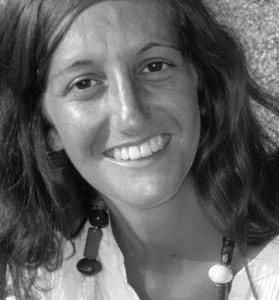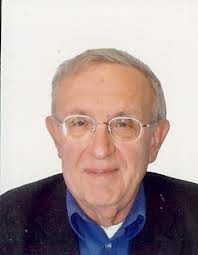Quand soudain on cite Monsieur Chouchani sur France 2…
C’etait il y a deux jours dans l’émission “La source de vie” et c’est le Professeur Benno Gross qui a lui-même connu Monsieur Chouchani qui nous rapporte ici un de ses enseignements…
Quand soudain on cite Monsieur Chouchani sur France 2…
C’etait il y a deux jours dans l’émission “La source de vie” et c’est le Professeur Benno Gross qui a lui-même connu Monsieur Chouchani qui nous rapporte ici un de ses enseignements…
In Italian, again! Miriam Camerini talks about her theater play Monsieur Chouchani (or Shoshani)
http://www.lechlecha.me/mounsieur-chouchani/
Dans le Talmud il est écrit : “Depuis le jour de la destruction du Temple, la prophétie a été retirée des prophètes et a été donnée aux fous et aux enfants”.
It’s written in the Talmud: ” Since the Temple was destroyed, prophecy has been taken from prophets and given to fools and children.”
“מיום שחרב בית המקדש ניטלה נבואה מן הנביאים וניתנה לשוטים ולתינוקות”
(בבא בתרא יב, ב)
Yzkor – on nous a envoyé cet email :
“Monsieur Chouchani est mort le vendredi soir 26 Tevet 5728, 26 janvier 1968. Cette année, ce vendredi 16 janvier, dès la tombée de la nuit, ce sera le 26 Tevet, Yom Zikaron, JahrZeit, de celui que nous n’oublions pas, parti sans autre descendance que ses disciples. 5728 s’écrit en hébreu תשכ”ח mais nous dirons לא נשכח aussi longtemps que nous vivrons, nous n’oublierons pas.
Signé : un élève anonyme.”
New picture of the grave:
“If I take the wings of the morning, and dwell in the uttermost parts of the sea;
Even there shall thy hand lead me, and thy right hand shall hold me.
”
“I will praise thee; for I am fearfully and wonderfully made: marvellous are thy works; and that my soul knoweth right well.”
(Psalm 139)
צילום חדש של הקבר:
“אשא כנפי שחר אשכנה באחרית ים י גם שם ידך תנחני ותאחזני ימינך”
“אודך על כי נוראות נפליתי נפלאים מעשיך ונפשי ידעת מאד” (תהילים קלט)
Interesting article on Elie Wiesel-Chouchani’s relationship and influence.
“Shushani’s influence on Wiesel cannot be overstated. “It is to him I owe my constant drive to question, my pursuit of the mystery that lies within knowledge and of the darkness hidden within light.” “(…)
“What, then, was the turning point in Wiesel’s life that led to his writing of Night?–and to a remarkable career of bearing witness to the Holocaust and to speaking out on behalf of all who suffer from oppression and injustice? Arguably, it was his unsettling initial experience with the wise teacher Shushani.
From Shushani he learned about Job, Midrash, the Talmud, and humanity. From Shushani he learned to question certainties, to care deeply about the suffering of others, and to acknowledge the power (and limitation) of words. Eventually, and above all, these lessons led Wiesel to a sense of responsibility, of personal moral accountability in the face of oppression and suffering.
From Shushani Wiesel learned that “Man is defined by what troubles him, not by what reassures him.” He learned that despite the limitation of words, he had to make his deposition.”
http://www.freepatentsonline.com/article/Cross-Currents/174012201.html
Prof Jacques Goldberg says about his Master Shoshani:

“[That's] how he started teaching me Torah when I was ten, not without quoting that the same method was used over the years, for Bible, Mishna, Talmud … and maths. Because he found me serious and motivated, he just very quickly gave up the requirement of writing, verbal was sufficient.
I would first read the next verse, never more, in Hebrew.
I would then copy the verse, in Hebrew, in my notebook, over two blank pages per verse, and draw columns lines word after word.
In each column I would write down all possible meanings of each individual word without consideration to the neighbor columns.
I would then start a loop in a loop in a loop etc… to build statements meaning by meaning. Most could quickly be discarded as making no sense.
Among those still making sense, I had to select the best, and convince Monsieur Shoshani why I was convinced that this was the best understanding.
And then I only had to convince him that the contrary could as well be correct… before starting the next verse.”
How to understand the Talmud – according to Monsieur Chouchani
“The fundamental principle is reported by Levinas in the name of his teacher, Chouchani: “One does not have to construct nor speculate abstractly, but through imagination.” On this are based the following assumptions:
1. Reading Talmud requires sensitivity to images, ideas, reactions, random thoughts, even distractions, that occur in the process of reading.
2. Reading Talmud requires asking questions, permitted or not.
3. The Talmud should be read aloud to approximate an oral tradition.
4. The Talmud is to be taken as a whole.
5. The Talmud is part of the story of the encounter between Israel and the “Nameless Being.” This encounter precludes a sensibility of oppression.
6. Although historical and scientific information is essential for a proper reading of the Talmud, such information must be subject to the same images, ideas, reactions, random thoughts, even distractions and – especially – questions as the text.
7. The mention of “Israel” means human being. As Levinas wrote:
Each time Israel is mentioned in the Talmud one is free, certainly, to understand by it a particular ethnic group which is probably fulfilling an incomparable destiny. But to interpret in this manner would be to reduce the general principle in the idea enunciated in the Talmudic passage, would be to forget that Israel means a people who has received the Law and, as a result, a human nature which has reached the fullness of its responsibilities and of its self-consciousness… the heirs of Abraham are all nations; any man truly man is no doubt of the line of Abraham.”
In “Reading Levinas/Reading Talmud: An Introduction”
By Ira F. Stone